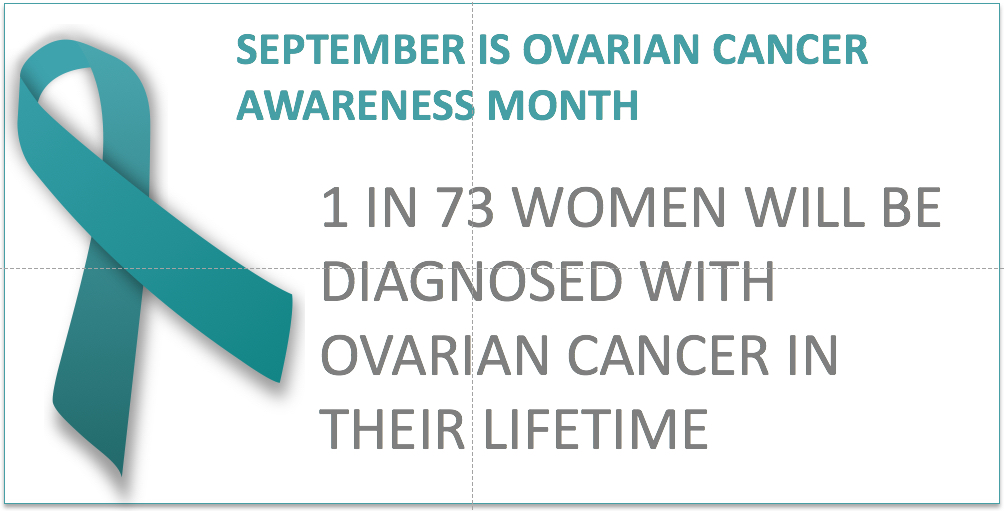 Via Pixabay
Via Pixabay
Sponsored by: AstraZeneca
To paraphrase the author John Green, I learned about ovarian cancer the way you fall asleep: slowly, and then all at once.
My mother was 62 years old when she was diagnosed with Stage III ovarian cancer in 1991. I can only describe the eight and a half years that led up to her death as painfully slow and disconcertingly fast at the same time.
Ovarian cancer is a terrible, deadly and sneaky disease, and women often do not experience symptoms until it has taken root in a deceptive way. In fact, the National Cancer Institute estimates that the disease will have spread to other parts of the body, or metastasized, in 60 percent of ovarian cancer patients by the time of diagnosis. These statistics are not particularly comforting considering more than 21,000 new cases of ovarian cancer will be diagnosed in the United States in 2015.
But, I’ve seen the empowerment that comes from knowing. My mother was tested for the BRCA gene in 1998 as a way to provide information – and hopefully, reassurance – to her daughters regarding their risk of developing ovarian cancer. She tested negative and it was not deemed necessary for me to be tested.
Between 1998 and 2009, I followed the screening protocol my mother’s medical team recommended: pelvic exam, color Doppler ultrasound, and a CA-125 blood test. I was BRCA tested twice – once following the removal of a uterine fibroid in 2009, and a second time in 2014, when I was motivated by tests that identified a greater number of gene variants. Both times, the result was negative.
I still believe that information is power and that being forewarned is being forearmed, and for those reasons I advocate for women who are at risk for, or who have ovarian cancer, to be BRCA tested. I know first-hand that waiting for the results can be unsettling – not to mention being faced with a positive result. However, understanding how the BRCA mutation can impact the course of this deadly disease, that it can affect treatment outcomes and help inform treatment decisions, feels essential to me.
I think BRCA testing is critical. The way I see it, if we have ovaries and breasts, we should know if they might be genetically programmed to do us harm. Too many women – educated women, women who wouldn’t leave the house without sunscreen or text while driving – avoid genetic testing for one of two reasons: they are afraid of what they might discover, or they – perhaps foolishly – don’t believe they are at risk.
While I personally am almost certain that a positive BRCA result would have led me to opt for a prophylactic hysterectomy, I fully support every woman’s right to make her own decision and choose her own path. I strongly encourage women to speak to their doctor about BRCA testing to learn more about how it can aid in treatment decisions and to use the results to make their best personal medical decision.
If you have gone through BRCA testing like I have, consider joining the conversation and spreading awareness through social media with the hashtag #beBRCAware during September’s Ovarian Cancer Awareness Month. Sharing your knowledge and personal experience can help inspire and encourage many women to talk to their doctors about BRCA testing.





Add a Comment2 Comments
Thank you for advocating for this testing. I was diagnosed 2 years and 7 months ago with Triple Negative breast cancer and found to be BRCA1 positive. We had no idea the gene existed in our family as the cancer had skipped a generation... but, the gene was still there... an unseen but ticking time bomb. The good news is that I'm cancer free. The bad news is that my sister and two of her daughters also carry the gene mutation. My daughter has not yet been tested. There is power in knowledge and while carrying the gene mutation is bad, in many ways, they are the lucky ones. They know they carry the gene and have the chance to make different, Informed decisions about there health before cancer becomes a part of their reality. If I'd known our family carried the gene mutation (or even that there had been breast cancer in the family), I'd have had the opportunity to open a discussion with my health care provider on a proactive basis. I speak to many groups about knowing your genetic health and can't thank you enough for helping to spread the word.
September 20, 2015 - 10:09pmThis Comment
I would only add that I'd still be concerned. If your mother was negative and she still had ovarian cancer, it's possible there is a mutation that is yet to be discovered. I know I am super proactive, but my personal inclination would be to remove my ovaries at SOME point...that point would be debatable & I'd possibly wait longer than i would have had i not experienced the consequences of menopause yet (i'd take hormones) -- I am BRCA+1 with a sister whose ovarian cancer was diagnosed in a preemptive strike (BSO) at 48 years young.
September 18, 2015 - 9:22amThis Comment